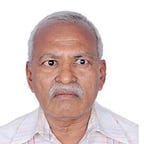Society Immortalizes a Man Doing Service to the Society
A human can be God!
Swami Vivekananda, the venerated Hindu Vedantist of India valued an unbeliever as equal to God on the planet. He paid rich and unreserved homage to him for his outstanding English educational service to the Bengali(vernacular) citizens of Kolkota( then Calcutta).
This man-God, according to him, was David Hare(1775–1842), the Scottish man who came to India in 1800 for his business.
He was a watchmaker and earned wealth in his watchmaking business in India. But as a foreigner, he was exceptional. He did not go back to his native country with his wealth and live there a comfortable life as per the norm for such foreigners in India. He broke the norm and stayed and died in India.
He loved the Indians, felt their need for English education, and, with his funds, established the Hindu School later renamed Presidency College and Hare School in the compound of the University of Kolkota for the spread of English education among the native Bengalis.
He extended his helping hand in establishing the School Book Society on 6 May 1817. ‘It took the initiative to print and publish textbooks in both English and Bengali. This society contributed substantially to the flowering of the Bengal Renaissance.
On 1 September 1818, he established the Calcutta School Society.’
The road where he lived is called Hare Street.
As a progressive committed to the English educational service of the Bengalis, he developed and nurtured deep relationships with his students, followers, and sympathizers.
Then an endemic, cholera broke out in Kolkota. One of his students was attacked by it. Hare, as his teacher, personally nursed him and saved his life. But in turn, he, a vulnerable old person, fell victim to cholera and died. His was the supreme sacrifice of his life for his beloved student.
As he was an unbeliever, he never went to church. His God was the people. The local Christian priests hated him. Christians not only not came forward to arrange his funeral and but also refused a place in the Christian graveyard for the burial of his body.
Then Hare’s pupils and well-wishers carried his body on their shoulders and buried his body in the land in the area of his school within the compound of the University of Kolkota. Thousands of his pupils, followers, and people proud of his service followed the long funeral procession.
In course of time, a memorial tomb was built on his burial spot and his bust statue was installed there. The place became-and has been- a popular site of pilgrimage in his memory.
Human beings can attain meaning in their this-worldly lives. Hare’s meaning in his life was the provision of English education to the native Bengalis. He succeeded in fulfilling his life-meaning or purpose.
Human beings can achieve their life-goals, small or big, in their lives and survive their death. They can become immortal on this earth in the minds and hearts of their relatives, pupils, friends, and well-wishing people proud of them for their work.
It is notable that the celebrated dualistic Hindu Vedantic spiritual teacher, Swami Vivekananda characterized the non-Hindu foreigner-unbeliever as God in the form of the human on this earth. So profoundly he felt indebted to David Hare for his English education service to the Bengalis and so liberal and expansive was his idea of God.
Immortality is attainable in this world and David Hare eloquently exemplifies this truth.
The other world, human’s afterlife and immortality in that world do not exist.
A famous poet epitomizes in his words what constitutes the human longing for immortality on this earth:
‘ I fall asleep in the full and certain hope
That my slumber shall not be broken;
And that, I be all-forgetting,
Yet shall I not be all-forgotten,
But continue that life in the thoughts and deeds I loved.’
Samuel Butler, Erewhon.
We see that David Hares, though never desirous or thinking of their immortality, survive their death. Their life-work and people cherishing and honoring it immortalize them.
